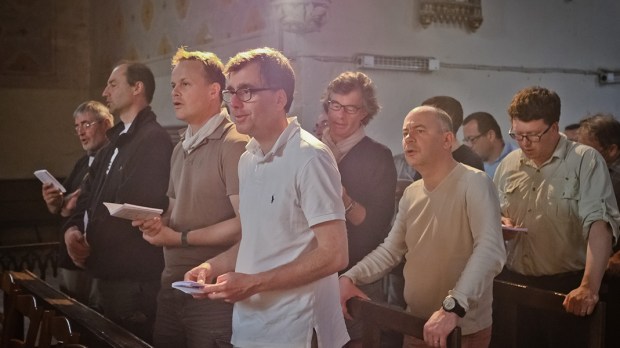Q. A few weeks ago you wrote that Catholics should stay and fight for their Church and that we shouldn’t let these scandals rob us of our faith. I agree with the sentiment but my question is what can regular churchgoers actually do? We don’t exactly have any power or authority to make changes, so how do you propose that we “fight?” What do you think is the appropriate response we lay folks in the pew should have?
A. First and foremost, we must remember we do have a measure of power, but we cannot forget this is not a power struggle. Our “power” is better appreciated when we form close communities of practicing believers. Also, we can decide against sending our children to schools that are known for teaching a compromised faith, and actively engage ourselves in our respective parishes to make sure we are all keeping the faith, free from ideologies or distortions. Finally, we can also call and write our bishops and voice our concern or support. We churchgoers are actually expected to do so.
But the most appropriate response is spiritual warfare. Even if it is true that we churchgoers are an ecclesial community, it is also true we all have personal call to holiness. This is the one thing, as a member of the laity, that you can take the lead on and start doing right away. It’s also the most powerful and impactful of them all.
- If your priest doesn’t already do so, suggest that your parish end each Mass with the prayer to St. Michael the Archangel.
- Suggest holy hours of adoration for the reparation of offenses against God, or sign up for an hour of adoration at a parish that offers perpetual adoration. Ask your bishop to join Bishop Robert Reed in a 24-hour prayer and fasting vigil.
- Request Mass intentions for the victims of clergy sex abuse.
- Volunteer to lead a Rosary or Chaplet before or after one of the weekend Masses, and promote the regular practice of praying the Chaplet of Adoration and Reparation.
- Encourage good priests. It’s easy to blame and criticize and focus on the bad clergy, but if you are blessed with a good and holy priest let him know you appreciate his holiness and fidelity. Send cards if you want to, and offer words of encouragement after Mass.
- Trust in God, above all else. Even if we never see sufficient justice meted out to the offenders, know and trust in God’s judgment and dispensing of final justice.
We all have the ability to lead by example. We all have the voice to speak out against behavior we won’t tolerate, and speak up for behavior we want to encourage and support. Encourage holiness from our clergy when you see it, and don’t be afraid to speak out against what we consider inappropriate, and to accept we are wrong when we actually are. We shouldn’t let our frustrations throw us into crippling spiritual despair. The power to turn this around is all ours.
The weekend after the initial news of this latest set of scandals broke, I anticipated arriving to a half-empty church. Instead it was standing room in a local adoration chapel and that Saturday the line for confession was like you’d see right before Easter. This should be our reaction everywhere: to not let the Devil win.
That is how we fight this, with holiness.

